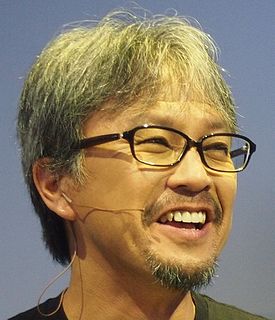A Quote by Laozi
The sage regards things as difficult, and thereby avoids difficulty.
Related Quotes
As regards the quietude of the sage, he is not quiet because quietness is said to be good. He is quiet because the multitude of things cannot disturb his quietude. When water is still, one's beard and eyelashes are reflected in it. A skilled carpenter uses it in a level to obtain a measurement. If still water is so clear, how much more are the mental faculties! The mind of the sage is the mirror of heaven and earth in which all things are reflected.
There is perhaps nothing so admirable in Christianity and Buddhism as their art of teaching even the lowest to elevate themselves by piety to a seemingly higher order of things, and thereby to retain their satisfaction with the actual world in which they find it difficult enough to live - this very difficulty being necessary.
When Mr. Miyamoto says easy, he doesnt mean simple. He means easily -- this is the difficulty of the language here. Its accessible, and you know how to do things, if not necessarily what to do. You may have a series of puzzles to figure out, and it may be difficult to decipher the meaning, but its not difficult to accomplish what you need to do.
What makes a subject difficult to understand ? if it is significant, important ? is not that some special instruction about abstruse things is necessary to understand it. Rather it is the contrast between the understanding of the subject and what most people want to see. Because of this the very things that are most obvious can become the most difficult to understand. What has to be overcome is not difficulty of the intellect but of the will.


































